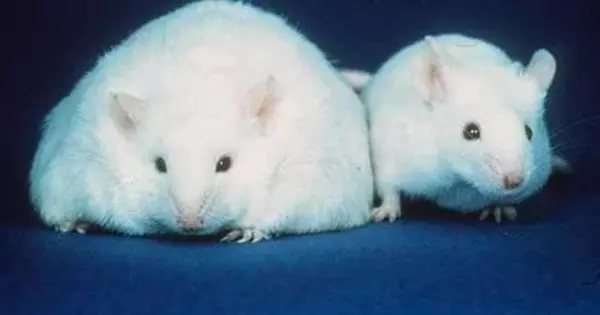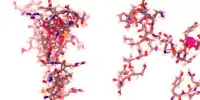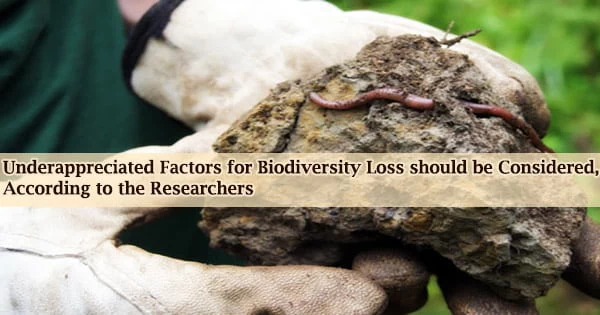A new study from Portland State University researchers is the first to show that eating a diet high in saturated fats can reprogram the mouse immune system, making it more resistant to infection but more susceptible to systemic inflammatory conditions such as sepsis. The study was led by Brooke Napier, an assistant professor of biology at PSU, and was published in the journal eLife.
The ketogenic or “keto” diet is a popular high-fat diet used for weight loss or seizure control. This study found that feeding mice a ketogenic diet high in saturated fats had a significant impact on their immune system.
Napier and colleagues discovered that mice fed a high-fat, high-sugar Western diet were more susceptible to sepsis and died at a higher rate than mice fed a standard diet in a previous study. The researchers discovered similar effects in mice fed a high-fat ketogenic diet in the current study, implying that dietary fat may play a role in sepsis.
The researchers focused on palmitic acid, which is commonly found in animal fats and dairy products, which was found in the blood of mice fed a ketogenic diet. Surprisingly, mice fed a normal diet and injected with palmitic acid developed sepsis.
Our model is the first time anyone has ever shown that a dietary constituent can provide this first pulse of inflammation. The fat is reprogramming their stem cells to produce more inflammatory innate immune cells, and those innate immune cells – when they’re put in this sepsis disease model – produce more cytokines, more fever and higher mortality rates.
Brooke Napier
“It was just exposure to this one saturated fat that made them more susceptible to sepsis mortality,” says Napier. “The idea that you could have a specific fat in your diet that would cause such a drastic outcome in disease is kind of incredible.”
Napier and her colleagues then investigated how high levels of palmitic acid could trigger sepsis. Their first clue came when they noticed that mice fed the Western diet, mice fed the ketogenic diet, and mice treated with palmitic acid all had high levels of inflammatory cytokines, immunological hormones that can cause fever and systemic inflammation during sepsis.
The presence of inflammatory cytokines suggested that palmitic acid could affect the immune system by causing inflammation, but Napier soon discovered that the story was more complicated and more interesting – than that.

A double-edged sword
The mammalian immune system is divided into two parts: the more primitive, short-lived innate immune system and the longer-lived adaptive immune system. When you get sick or get a vaccine, your adaptive immune system produces antibodies, preparing your body to fight off an infection in the future. This is a type of biological ‘memory,’ which can last months, years, or even a lifetime.
Despite the fact that its cells only last a week to a month in the blood, biologists recently discovered that the innate immune system can also hold memory. The innate immune system’s ‘memory’ is created by altering the stem cells in bone marrow that produce future innate immune cells, a response known as trained immunity.
Napier and colleagues discovered that palmitic acid can activate trained immunity in this study. The fat acts as a “brief pulse of inflammation” that changes the function of stem cells in the bone marrow of mice, causing them to produce more inflammatory innate immune cells in the future. This means that when the innate immune system is exposed to a second inflammatory stimulus later on, it reacts much more strongly. This response is sometimes overly strong, as in the case of sepsis.
“Our model is the first time anyone has ever shown that a dietary constituent can provide this first pulse of inflammation,” says Napier. “The fat is reprogramming their stem cells to produce more inflammatory innate immune cells, and those innate immune cells – when they’re put in this sepsis disease model – produce more cytokines, more fever and higher mortality rates.”
But that isn’t the whole story — because inflammation isn’t always a bad thing.
“If you only have an infection, more inflammation is better because it allows the infection to clear faster,” Napier explains. This was discovered in mice treated with palmitic acid by the researchers. They outperformed untreated mice in fighting off a Candida yeast infection.
“It’s a double-edged sword in that if you have high-fat exposure and then exposure to a disease where more inflammation exacerbates the disease, then it’s a bad thing,” Napier says. “However, if you eat a high fat diet and then get an infection, and more inflammation helps you clear the infection faster, that’s a good thing.”
Not all fats are created equal
Napier and colleagues also found that another type of fat may be able to counteract the harmful effects of palmitic acid. Oleic acid, a polyunsaturated fat found in many plant-based oils including olive oil, can block the synthesis of ceramide, a fatty substance that can initiate a stress response in cells and may play a role in the hyper-inflammatory response that causes sepsis.
When the researchers fed mice a ketogenic diet for two weeks but also gave them oleic acid for the final three days, they no longer showed an increased susceptibility to sepsis.
“It was absolutely shocking,” says Napier.
While more research is needed to see how the results of this study may extend to humans, these results could suggest that the types of fats a person eats could impact the functioning of their immune system and their susceptibility to disease.
“If you follow a keto diet that is high in dairy products and red meats, you will have a very high level of palmitic acid. Without balancing that with polyunsaturated fats from sources such as olive oil, it seems plausible that you could be increasing your risk of sepsis “Napier emphasizes that this study is not a condemnation of the ketogenic diet. “In the same way, eating a lot of palmitic acid could help you clear infection in the event of a global pandemic.”
These results may also have relevance for hospitals. They could lead to changes in the diets given to people being fed with feeding tubes, for example, or inform how best to administer medications that are solubilized in fatty acids. Healthcare providers may one day increase or decrease the ratios of oleic acid and palmitic acid for a patient depending on their particular risk of infection or sepsis.
















